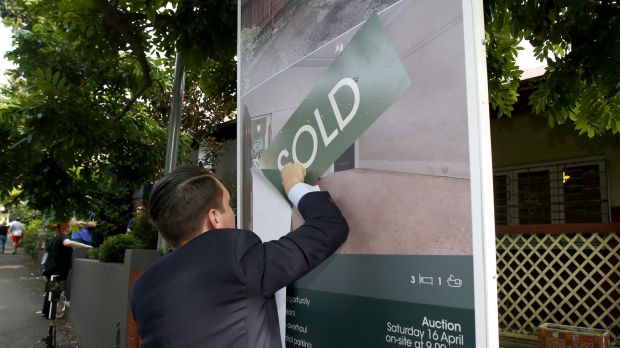Real-Estate Agents Look To AI For Sales Boost
American technology leaders at Realogy, Compass and Zillow hope to augment human savvy with algorithms.
Information-technology executives at some real-estate firms are rolling out artificial-intelligence-based tools designed in part to help agents close deals faster, which could prove useful in today’s hot housing market.
While the selling and buying of homes remains an agent-driven business, IT leaders say such tools can augment their efforts, especially in a market with record prices and tight inventory.
“AI can play a significant role in simplifying and automating processes where traditionally humans have been involved,” said Rizwan Akhtar, chief technology officer of business technology at Realogy Holdings Corp., which owns brokerage brands including Coldwell Banker, Corcoran and Sotheby’s International Realty.
Artificial-intelligence efforts in the real-estate sector are benefiting from advances in cloud computing and data analytics, as well as improvements to algorithms, according to technology leaders at Realogy, Compass Inc. and Zillow Group Inc.
Realogy uses more than 25 AI models, Mr. Akhtar said, including models that can help agents predict their chances of converting a prospective client into a paying client and others that can predict the optimal percentage split between a broker and an agent on a property.
The company is in the early stages of testing an AI app that aims to predict when certain milestones will be reached in the home-buying process, he said.
At real-estate brokerage Compass, an AI-based tool that predicts whether people in an agent’s contact database are likely to sell their homes within a year resulted in more “listing wins” for its agents, said Joseph Sirosh, the company’s chief technology officer. In the second half of 2020, the tool’s recommendations led to a 94% higher “win rate” than the rate for properties that weren’t identified as likely to sell, he said. The technology was released last summer.
Agents reach out directly to people identified by the tool as likely to sell. Traditionally, agents knock on doors, rely on word-of-mouth referrals and make calls to meet potential clients, Mr. Sirosh said. “Agents save time when they are far more targeted,” he said. The model takes into account dozens of variables to make a prediction, including how often homes sell in that region, what the last sale price was and how much the home has appreciated over time, he said.
Realogy offers agents a similar tool.
The coronavirus pandemic resulted in boosting adoption of AI tools among agents, Mr. Sirosh said. During the height of the pandemic, “agents could not work without technology which meant that everything associated with technology, like AI, which provides efficiencies, became incredibly useful,” he said.
Online real-estate company Zillow recently announced that its Zestimate tool, which estimates a home’s market value, is powered by a neural network that learns on its own and takes into account hundreds of millions of data points. The data range from the home’s square footage and unique features to location and how the property differs from surrounding homes, said Stan Humphries, the company’s chief analytics officer.
A neural network is a branch of artificial intelligence that aims to mimic the way the human brain learns.
AI-based models can’t account for human intuition or empathy, though. Buying and selling a home is a “deeply emotional, very risky transaction,” Mr. Humphries said. “Humans are always going to want another person, an expert, to help them with that process.”
AI can add value for agents in incremental ways but real estate will always be a heavily people-focused industry, said Mike DelPrete, scholar in residence on real estate technology at the University of Colorado Boulder. Real-estate companies sometimes tout their prowess in technology and AI to attract agents, Mr. DelPrete said. But the degree to which agents will actually adopt AI and other software tools is uncertain, he added.
“More people are talking about AI in the real-estate industry as a point of differentiation…but the reality on the ground is that it’s more of a marketing tagline,” Mr. DelPrete said.
Reprinted by permission of The Wall Street Journal, Copyright 2021 Dow Jones & Company. Inc. All Rights Reserved Worldwide. Original date of publication: June 22, 2021
 Copyright 2020, Dow Jones & Company, Inc. All Rights Reserved Worldwide. LEARN MORE
Copyright 2020, Dow Jones & Company, Inc. All Rights Reserved Worldwide. LEARN MORE
This stylish family home combines a classic palette and finishes with a flexible floorplan
Just 55 minutes from Sydney, make this your creative getaway located in the majestic Hawkesbury region.
As Paris makes its final preparations for the Olympic games, its residents are busy with their own—packing their suitcases, confirming their reservations, and getting out of town.
Worried about the hordes of crowds and overall chaos the Olympics could bring, Parisians are fleeing the city in droves and inundating resort cities around the country. Hotels and holiday rentals in some of France’s most popular vacation destinations—from the French Riviera in the south to the beaches of Normandy in the north—say they are expecting massive crowds this year in advance of the Olympics. The games will run from July 26-Aug. 1.
“It’s already a major holiday season for us, and beyond that, we have the Olympics,” says Stéphane Personeni, general manager of the Lily of the Valley hotel in Saint Tropez. “People began booking early this year.”
Personeni’s hotel typically has no issues filling its rooms each summer—by May of each year, the luxury hotel typically finds itself completely booked out for the months of July and August. But this year, the 53-room hotel began filling up for summer reservations in February.
“We told our regular guests that everything—hotels, apartments, villas—are going to be hard to find this summer,” Personeni says. His neighbours around Saint Tropez say they’re similarly booked up.
As of March, the online marketplace Gens de Confiance (“Trusted People”), saw a 50% increase in reservations from Parisians seeking vacation rentals outside the capital during the Olympics.
Already, August is a popular vacation time for the French. With a minimum of five weeks of vacation mandated by law, many decide to take the entire month off, renting out villas in beachside destinations for longer periods.
But beyond the typical August travel, the Olympics are having a real impact, says Bertille Marchal, a spokesperson for Gens de Confiance.
“We’ve seen nearly three times more reservations for the dates of the Olympics than the following two weeks,” Marchal says. “The increase is definitely linked to the Olympic Games.”

Getty Images
According to the site, the most sought-out vacation destinations are Morbihan and Loire-Atlantique, a seaside region in the northwest; le Var, a coastal area within the southeast of France along the Côte d’Azur; and the island of Corsica in the Mediterranean.
Meanwhile, the Olympics haven’t necessarily been a boon to foreign tourism in the country. Many tourists who might have otherwise come to France are avoiding it this year in favour of other European capitals. In Paris, demand for stays at high-end hotels has collapsed, with bookings down 50% in July compared to last year, according to UMIH Prestige, which represents hotels charging at least €800 ($865) a night for rooms.
Earlier this year, high-end restaurants and concierges said the Olympics might even be an opportunity to score a hard-get-seat at the city’s fine dining.
In the Occitanie region in southwest France, the overall number of reservations this summer hasn’t changed much from last year, says Vincent Gare, president of the regional tourism committee there.
“But looking further at the numbers, we do see an increase in the clientele coming from the Paris region,” Gare told Le Figaro, noting that the increase in reservations has fallen directly on the dates of the Olympic games.
Michel Barré, a retiree living in Paris’s Le Marais neighbourhood, is one of those opting for the beach rather than the opening ceremony. In January, he booked a stay in Normandy for two weeks.
“Even though it’s a major European capital, Paris is still a small city—it’s a massive effort to host all of these events,” Barré says. “The Olympics are going to be a mess.”
More than anything, he just wants some calm after an event-filled summer in Paris, which just before the Olympics experienced the drama of a snap election called by Macron.
“It’s been a hectic summer here,” he says.

AFP via Getty Images
Parisians—Barré included—feel that the city, by over-catering to its tourists, is driving out many residents.
Parts of the Seine—usually one of the most popular summertime hangout spots —have been closed off for weeks as the city installs bleachers and Olympics signage. In certain neighbourhoods, residents will need to scan a QR code with police to access their own apartments. And from the Olympics to Sept. 8, Paris is nearly doubling the price of transit tickets from €2.15 to €4 per ride.
The city’s clear willingness to capitalise on its tourists has motivated some residents to do the same. In March, the number of active Airbnb listings in Paris reached an all-time high as hosts rushed to list their apartments. Listings grew 40% from the same time last year, according to the company.
With their regular clients taking off, Parisian restaurants and merchants are complaining that business is down.
“Are there any Parisians left in Paris?” Alaine Fontaine, president of the restaurant industry association, told the radio station Franceinfo on Sunday. “For the last three weeks, there haven’t been any here.”
Still, for all the talk of those leaving, there are plenty who have decided to stick around.
Jay Swanson, an American expat and YouTuber, can’t imagine leaving during the Olympics—he secured his tickets to see ping pong and volleyball last year. He’s also less concerned about the crowds and road closures than others, having just put together a series of videos explaining how to navigate Paris during the games.
“It’s been 100 years since the Games came to Paris; when else will we get a chance to host the world like this?” Swanson says. “So many Parisians are leaving and tourism is down, so not only will it be quiet but the only people left will be here for a party.”
This stylish family home combines a classic palette and finishes with a flexible floorplan
Just 55 minutes from Sydney, make this your creative getaway located in the majestic Hawkesbury region.






















